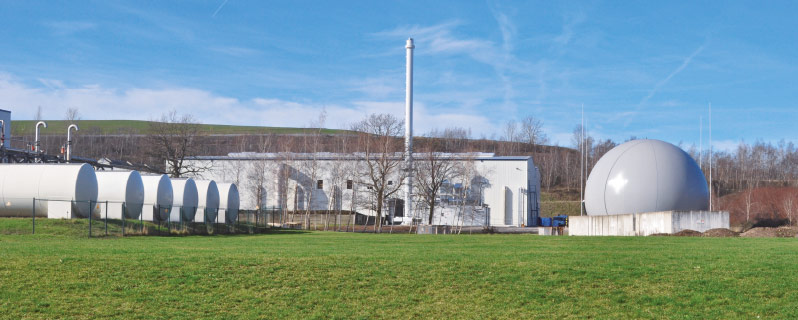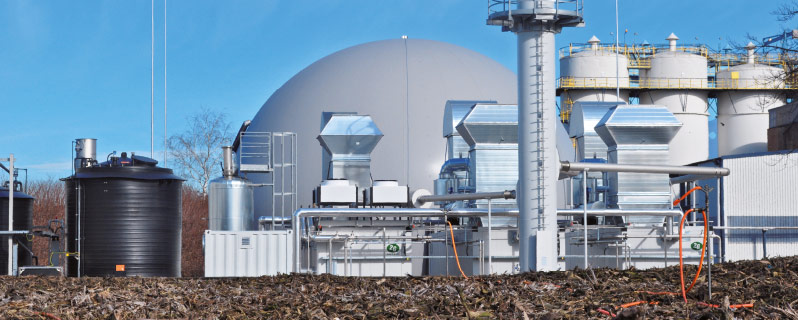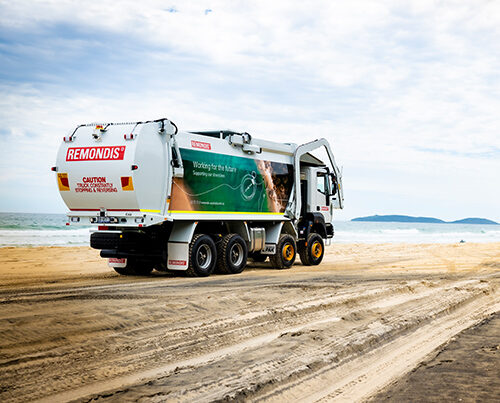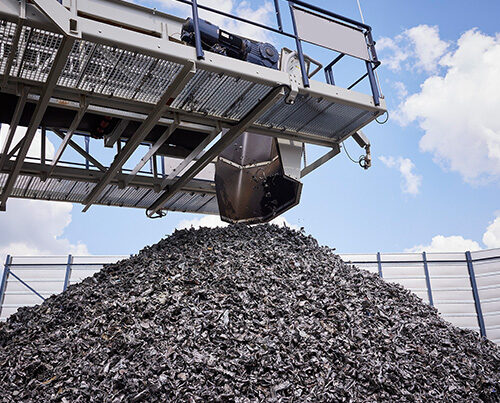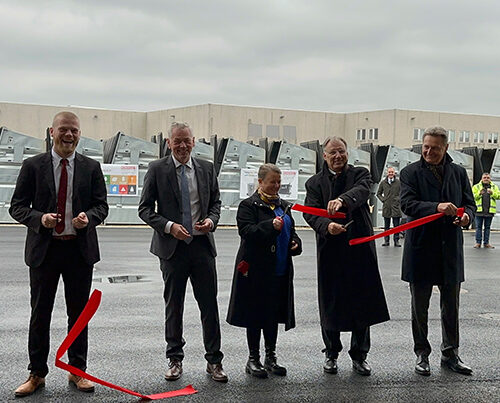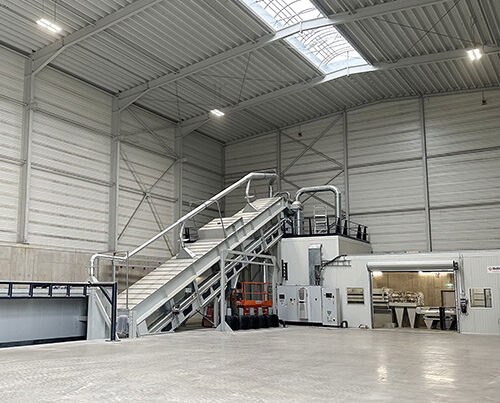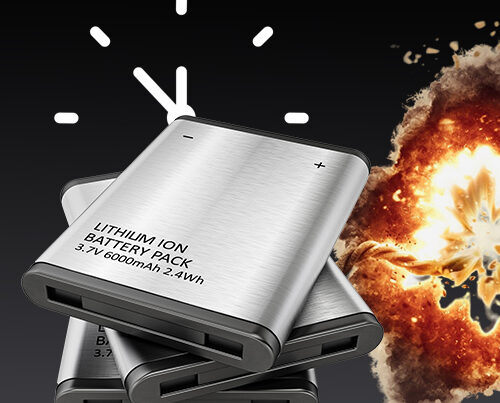A new, innovative concept
The District of Unna has been using a new and innovative concept for processing its organic waste and green waste since the beginning of this year. Now that the construction of the new digester facility (in which GWA [Gesellschaft für Wertstoff- und Abfallwirtschaft Kreis Unna] owns a 51% share and REMONDIS a 49% share) has been completed at the Lippe Plant in Lünen, the energy content in the organic waste is now being transformed into combustible biogas before the material is sent on for composting.
A range of advantages
This state-of-the-art plant offers a number of key advantages: three combined heat and power units transform the gas generated by this system into electricity, which can then be fed into the national grid. At the same time, the waste heat helps to keep the fermentation process going and the most can be made of the resulting methane gas without it being released into the atmosphere. At the end of the day, methane gas is 25 times more harmful than CO2 – a fact many people are unaware of. As a result, Bioenergie Kreis Unna GmbH or BKU, the company running the plant, is also helping to curb climate change. But that is not its only advantage: this system should also help cut waste charges as it is expected to reduce costs by 160,000 euros a year.
Methane gas is 25 times more harmful than CO2.
REMONDIS is the perfect partner
GWA had been wanting to transform organic waste into energy for a long while: “It simply wasn’t viable to build and run a digester as we weren’t handling sufficient volumes of organic waste,” explained Andreas Gérard, managing director of GWA. Following a Europe-wide tender, however, GWA found an ideal partner with the privately run recycling, service and water company. “REMONDIS presented us with a robust concept for a site located in the District of Unna,” Andreas Gérard continued.
The biogas is piped into the gas storage tank before being transformed into electricity by the three combined heat and power units
“REMONDIS presented us with a robust concept for a site located in the District of Unna.”
Andreas Gérard, GWA Managing Director
Generating electricity on a grand scale
REMONDIS has used this opportunity to build a high performance digester with a downstream composting plant. Thanks to this new digester, the most can now be made of the energy content in the organic waste so that around 4.5 million kilowatt hours of electricity can be generated. “Old fruit and vegetables and cut grass provide us with the energy we need,” explained Björn Zimmer, who is in charge of the new digester. Such residual materials are fed into the digester and mixed at a temperature of 56°C so that the gas can settle in the upper third of the tank and be extracted.
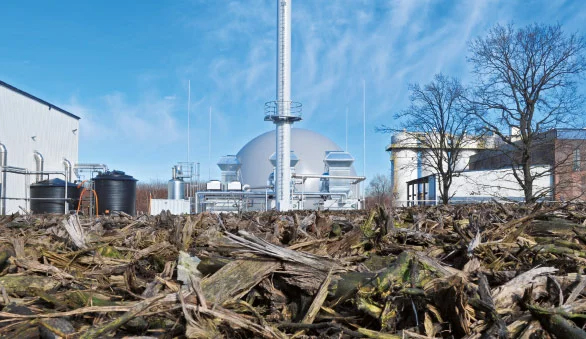
The strong-smelling waste air is fed through a bed of shredded roots, mulch and heather – cleaning it in the best possible way
A perfect example of cascaded use
There is also a recycling solution for the low-energy materials: plant and tree cuttings, leaves and even old Christmas trees end up in one of the seven composting tunnels. Oxygen and heat are added to the material gradually transforming it into compost. “The compost or humus is ready after about two weeks. This is then processed so that it can be used, for example, by farmers and landscaping businesses to improve the nutrient content of their soils,” Björn Zimmer concluded. Transforming organic residue into energy is an excellent addition to REMONDIS’ portfolio of services and further underlines the company’s mission to promote sustainability and tackle climate change. This is also the reason why the company’s composting plant in Lünen is not its only facility to be retrofitted – REMONDIS is currently building innovative biogas facilities at seven other locations as well.
Image credits: image 1: Adobe Stock: malp; images 2–4: © REMONDIS


